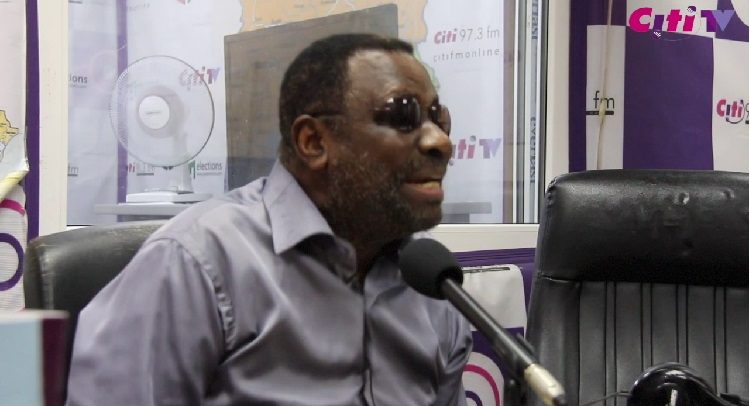On July 27, 2023, the Parliament of Ghana passed a law criminalising the declaration, accusation and naming or labelling of another person as a “witch.”
And on 24 August 2023, Joy News reported that the President, Nana Addo Dankwa Akufo-Addo, had been criticised by the Commission for Human Rights and Administrative Justice (CHRAG), for not yet signing the bill into law by giving it his “assent”.
I laughed when I saw the report criticising the President. I told myself: “Yieee! What a strange country we live in! In whose judgement can we trust?”
What astounded me is that for over 10 years, I have been conducting a campaign to get the Ghana Police Service and the Attorney-General’s office to explain to the Ghanaian public, why the prosecution of a group of individuals, taken to court for burning alive, a 72-year-old woman (accused of witchcraft, simply because she had lost her way and gone into the wrong house to lie on a bed she saw!) has stalled.
The woman was called Madam Ama Hemma and her death occurred on 20 November 2010. The details of the story were so horrific that Daily Graphic led its front page with it, illustrated by a terrifying, half-naked picture of the old woman, with her burns showing. (Interested parties can look up the full details on www.wikipedia.com, where a whole page is devoted to the story).
The Ghana Police Service were admirably prompt in arresting those who took part in the murder and gave the public information about what had emerged from their investigations. But after taking the suspects to court thrice or so, the public heard ABSOLUTELY NOTHING MORE about the case.
Never, in the six decades I’ve practised journalism, have I seen a more blatant disregard for the public interest, as I have seen with the cessation of prosecution on this matter. Since 2010, I have written a great number of articles it, both in the local media and the overseas Press.
The reason is that the matter ticks all the boxes that signify contempt for public opinion by officialdom.
The police and the prosecution service should exercise their prosecutorial powers in a manner that seems to them to be proper. But they have to inform the public about why they have acted in a way that puzzles the public.
Members of the public had no inkling of the thought processes of the prosecutors knew. And since we do not have secret courts in Ghana, stories about police motives were invented.
I keep asking the police and the AG’s Department to, at the very least, state their side of the matter. The public might not agree with them, yes! But in a democracy, not everyone could think like everybody else.
I have called out the Minister of the Interior, the Attorney-General, and the Inspector-General of Police, telling them their silence was not conducive to the public good. They have all ignored my pleas. I called on human rights organisations to press the authorities for a statement. Nothing doing.
I pleaded with members of my own profession to join me. But they had weightier matters to write about!
About the Commission on Human Rights and Administrative Justice (CHRAJ), I said this:
QUOTE:
“[If no public explanation of the cessation of the prosecution is forthcoming] then, in committing similar crimes, the criminals can assure themselves that they are doing something that an amorphous group of “higher authorities” in the society would approve of! In other words, a climate of tacit connivance would come to exist between members of society and potential criminals. It is my awareness of this social phenomenon and of the possibility of encouraging imitative or “mimic”, crimes to be committed, that I have written and written and written about the dangers of not prosecuting Madam Hemma’s murderers and bringing them to justice.
“Even more bizarre is the fact although Madam Hemma’s case has been extremely well publicised, the Commission on Human Rights and Administrative Justice (CHRAJ) which was created in 1993 as an independent institution, designed to “protect fundamental human rights and freedoms in Ghana”, has not, to my knowledge, asked the police anything about Madam Hemma’s case!
“If CHRAJ really “exists to build on and improve goon governance, democracy, integrity, peace and social development across the nation” does it think that looking on unconcerned when acts of murder are not adequately prosecuted, can guarantee the human rights of Ghanaians? Isn’t the right to life the most important of all human rights?
CHRAJ and the other organisations that often go to the aid of educated members of the society whose rights are trampled upon, should make their work also relevant to the disadvantaged sections of the society.
UNQUOTE
It appears, however, that the maltreatment of alleged witches was losing the Government “cred” with people overseas. That’s why it took a Bill through Parliament, making it an offence to label people as “witches” and maltreat them.
The Bill was, as I have stated above, went through Parliament on 27 July 2023. And – in less than a month, CHRAJ is criticising the President for not giving his assent to it!
If in 13 years, CHRAJ did not find the voice to even merely ask the Ghana prosecution authorities to explain why they stopped prosecuting the alleged murderers of Madam Ama Hemma, but in one month, it has felt concerned enough to criticise the President for not assenting to a Bill his own Government has taken through Parliament, I suppose we should commend CHRAG?
Only the Ga language can adequately give expression to what I think of that notion – Anokwale mpo! [Oh yeah?]
www.cameronduodu.com
By Cameron Duodu

